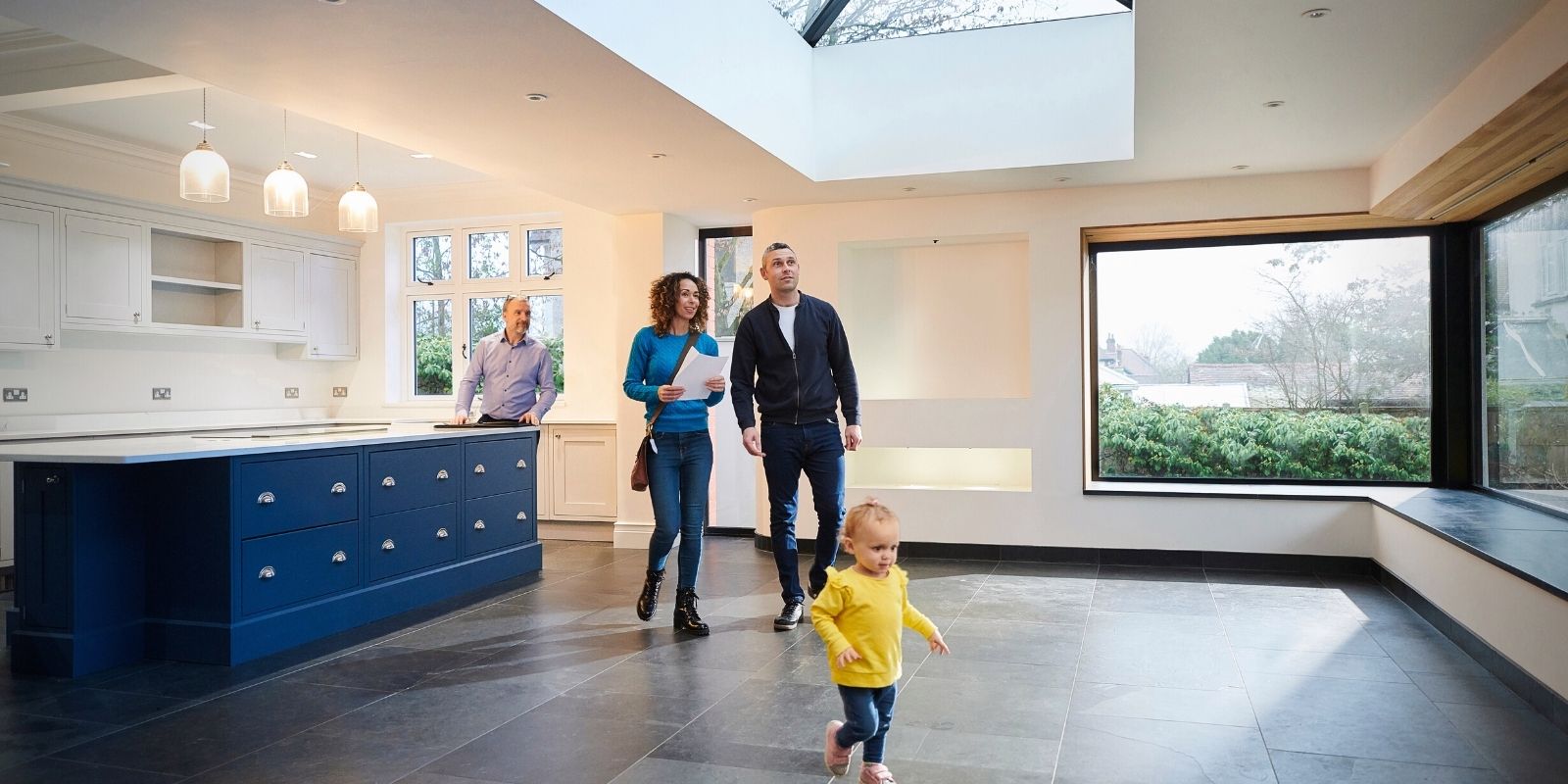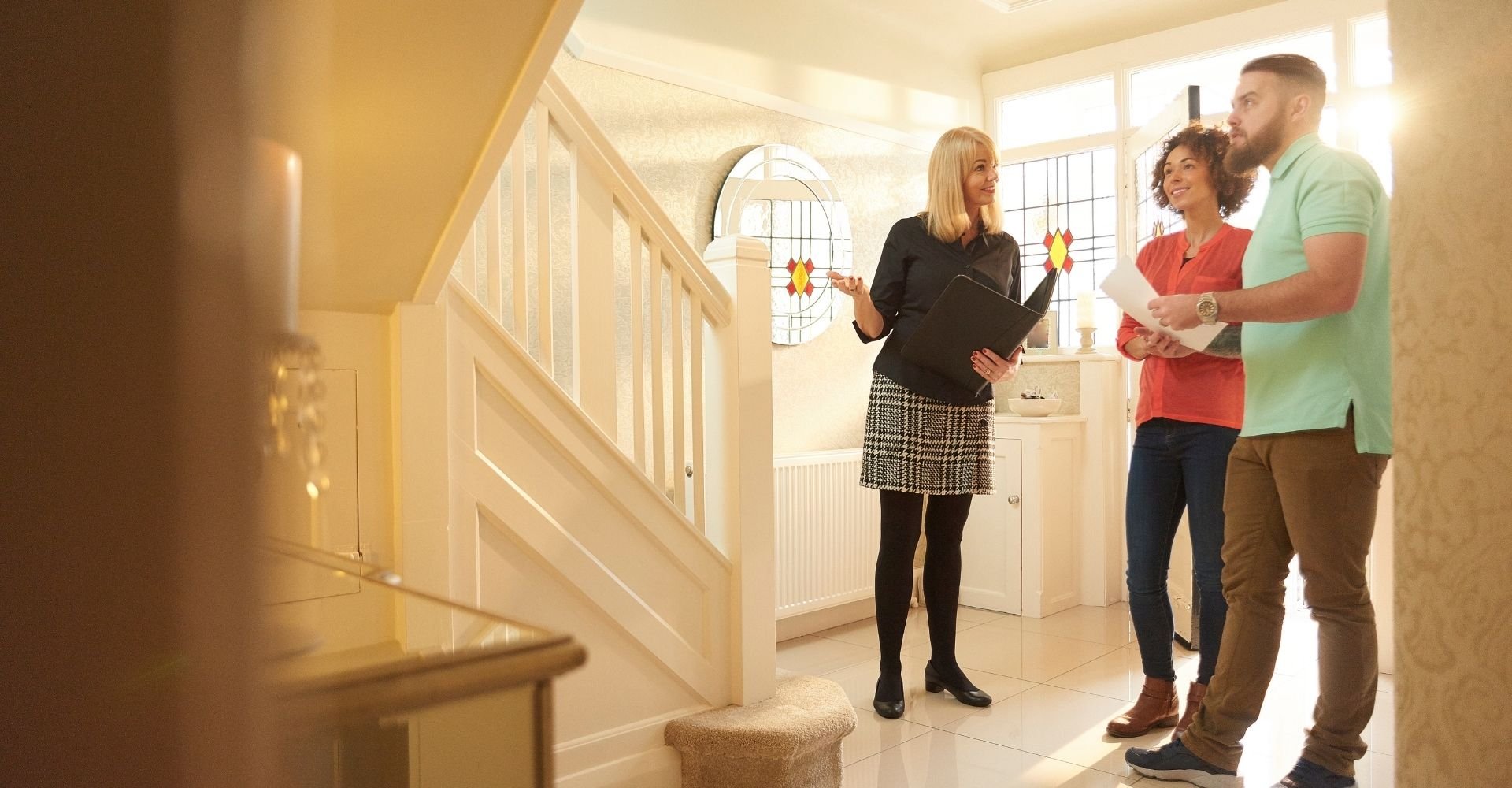If you’re a home buyer in Texas, you know how the current real estate market is hotter than a black car in an Austin parking lot in summertime.
This frantic seller’s market can leave you concentrating more on what you can get rather than the home and features you really want.
While it may be a hard time to be a home buyer right now, that doesn’t mean you can’t get a beautiful property that meets your needs and enjoy the benefits of homeownership.
You just need to know what specific things to look for when buying a home.
In this article, we’ll highlight how to hone in on what features are important to you, as well as how to catch major deal-breakers like damage, a poor layout, or a bad location.

Before You Start Looking at Houses
Looking for your new house is exciting!
But before you get caught up in the thrill of the house hunt, it’s important to do a little research to put yourself in the best position possible to buy a house.
This is especially true for first-time homebuyers.
Before you start scrolling through listing photos, consider a few of these tips so you can optimize your search for a new home.
Find a Trustworthy Real Estate Agent
If you’re buying a home, you have nothing to lose and everything to gain by working with a trusted Realtor.
An experienced and reliable real estate agent costs you nothing (their fee is paid for by the seller).
Finding an agent with expertise in the geographic area and type of home you want will help make your search for a house more fruitful and efficient.
Once your agent knows the type of property you’re looking for, he or she can be on the lookout for listings that are coming on the market that meet your specifications.
Realtors often know about new listings — often before they hit the MLS!
Plus, the agent will take care of all the hard parts of the process, like the paperwork, negotiations, coordinating with inspections, etc.
Budget & Finances: How Much Home Can You Afford?
To avoid disappointment or worse —buying more home than you can afford— do yourself a favor and make a home buying budget before you begin house shopping.
DO NOT base your housing budget on what the bank will lend you.
Experts recommend your housing expenses (i.e., mortgage, insurance, and utilities) should cost no more than a third of your gross monthly income.
In addition to the monthly costs, determine how much of a down payment you can make.
There are benefits and drawbacks to making a large down payment, and the various types of mortgages will have differing requirements.
Don’t forget to plan for any DIY home improvements as well.
Make sure that you don’t commit so much cash to the down payment that you have no household emergency fund in case something breaks.
Each of these costs (your monthly housing costs, down payment, and emergency fund) taken together will give you a good impression of your overall financial picture and obligations.
Get Pre-Approved for a Mortgage
Now that you know about how much you have to spend on a house, you’re ready to get pre-approved for a mortgage.
This step in the mortgage loan process is vital (especially in a hot market) for getting sellers to take your offers seriously.
A common mortgage shopping mistake is to get pre-qualified but not pre-approved for a mortgage.
Getting pre-approved involves giving the bank or lender a quick proof of your income, credit, and other qualifications; in exchange, they give you a letter stating you are (likely) approved for a mortgage up to a certain amount.
This makes sellers rest assured that you will have the money to back up the offer you submit and that you’ll actually be able to close the deal.
You’ll be in a stronger position to negotiate your home purchase as well.
This will also help you narrow your search, so you won’t be looking at houses you can’t afford.
(It’s worth noting that a pre-approval is not a guarantee, and that the lender will do a deeper dive into your finances during the underwriting process.)
To learn more about lenders, check out our guide on finding the best mortgage lender.

7 Things to Look for When Buying a House in Texas
With all of these pre-shopping arrangements made, you are now ready to search for a house!
Before you fall in love with a place, keep your eyes open to check for the items below.
You don’t want to potentially miss or overlook things that you want in a home (or want to avoid).
1. Location & Neighborhood
You can renovate and improve the home, but the one thing you can’t change is the location.
Below are a few of the factors you should consider when assessing a potential home’s location:
- Neighborhood safety
- Local public schools
- Proximity to shopping / entertainment
- Commute time
Each of these will have an impact on the everyday life of you and your family members, so choose your location wisely.
2. Size & Layout of the House
Be sure to assess the size of house you want — both for your current needs, as well as future ones.
Are you planning to have children in the future?
If so, will the house be able to accommodate your future family size?
If you are nearing the retirement or empty-nester phase, will you need as much square footage in the future?
Look beyond the amount of square footage of a home—how that square footage is used is just as important.
Take the layout of your home into account as you picture yourself living in the home.
For instance, if you plan to have your house into your golden years, a two-story with a steep staircase or split level home may not be the layout for you.
3. The Home’s Systems
Be sure to check “under the hood” of your future home by inspecting the mechanical systems to ensure they’re operating properly.
This includes things like the heating, AC, electrical, water heater, plumbing, etc.
Make notes of the dates of when major systems were installed, fixed, or updated.
Factor how soon you’ll need to replace or update these systems into the price of any offers you make.
Unless you are a very skilled contractor or construction expert, plan to hire an inspector to make sure you don’t miss anything major.
Hiring an inspector will help you avoid the most common home inspection issues.
4. Exterior of Home
Look over the exterior of potential homes to check the roof, siding, foundation, etc.
These exterior pieces are often the most expensive parts of a home, so it’s worth taking the time to look into them carefully.
You may not pick up on everything that needs improvement, but it doesn’t take much expertise to notice weathered siding or a crack in the foundation.
5. The Garage
If a garage is included, spend time looking that over as well.
Grab a tape measure and make sure that your new home will have adequate parking space, and that your car and your stuff will both fit in your garage.
If there isn’t enough room, you’ll be stuck parking on the street, renting a storage unit, or having a garage sale to downsize.
6. Signs of Damage
Inspect the inside and outside of a home for signs of damage like musty odors, water damage, mold, cracks, etc.
Even if you don’t mind buying a fixer-upper, anything you find can be used to negotiate the home’s selling price later on.
7. The Basement & Attic
Don’t forget the attic and the basement when you’re touring a home.
For one, you’ll want to know if they are livable spaces or if they’ll need to be finished to be usable square footage.
For another, these places can harbor signs of pests or damage, so they are well worth inspecting.
Consider radon testing and professional insulation inspection as well.

Key Takeaways on What to Look for When Buying a House in Texas
As thrilling as house hunting can be, be sure to pair your enthusiasm with even more observation and analysis.
Start by analyzing your own finances and needs to get them in order.
Coming to the table with an accurate view of how much you can spend and a pre-approval letter will up your chances of getting your dream home.
As you tour houses, make sure the home’s layout, location, and features will meet your needs—both present and future.
Keep your eyes open for any systems or areas that could hide problems.
When you’re buying a house, a real estate agent is essential to help you find exactly the home you’re looking for.
An experienced agent will help you hone in on a property in the best neighborhood with all the features you need.
To find a trustworthy and reliable real estate agent, look no further than the oldest Real Estate Agency in Fort Worth, TX: Helen Painter Group Realtors.
Helen Painter’s agents have been representing buyers and sellers in Fort Worth since 1958.
Give us a call for a free consultation today!

